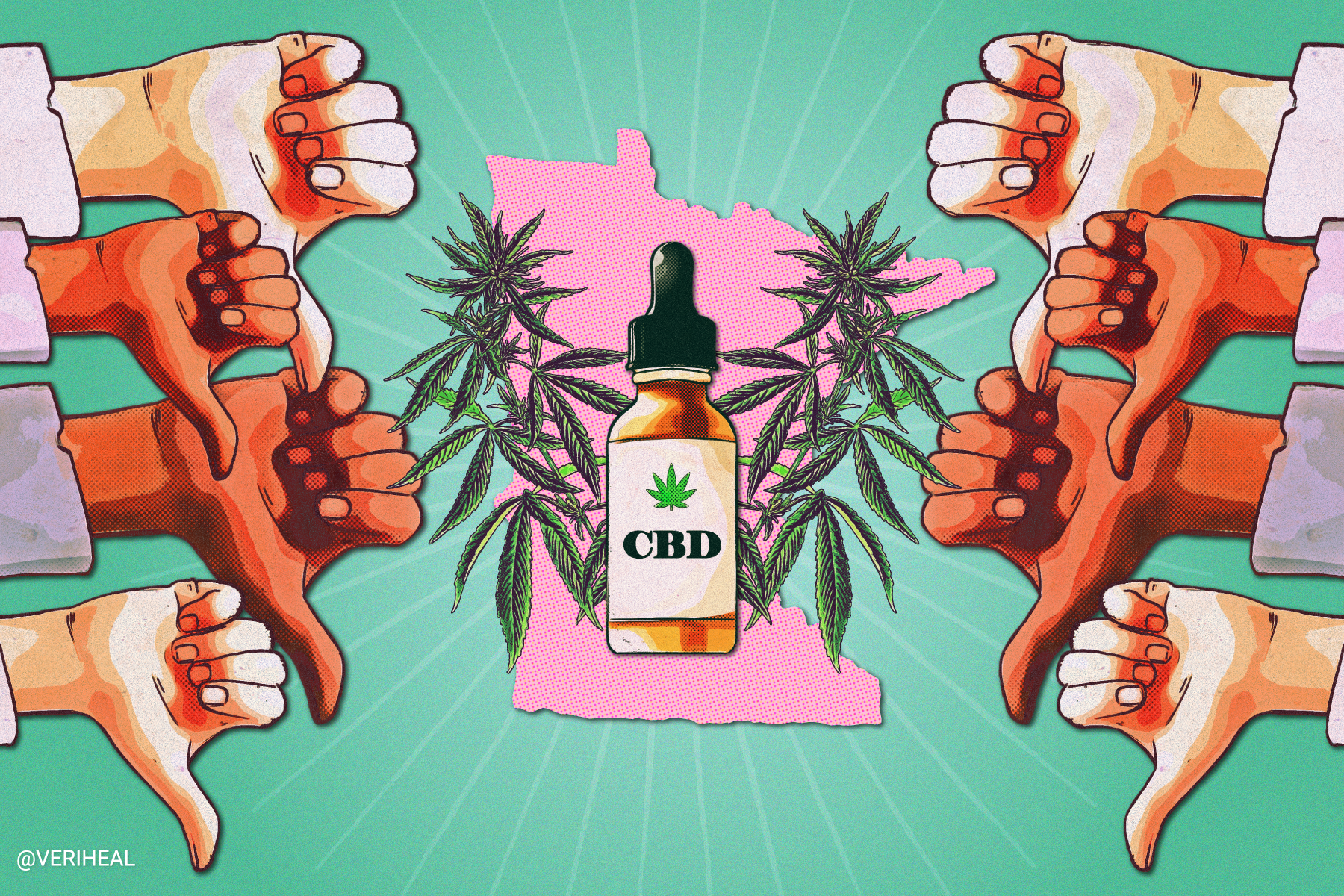In December 2021 the Minnesota Board of Pharmacy declared all CBD and hemp-derived consumables to be illegal in the state. The board’s decision—which was made based on gaps in the 2018 Farm Bill that federally legalized hemp—is outlined in the document from its 901st meeting.
While the board specified that hemp seed oil (with no CBD or THC) and hemp flower (with 0.3% or less THC) are still legal, the new stance effectively banned CBD and other hemp-derived products, such as delta-8 THC. The move has put many CBD and hemp-related companies across the state in a precarious position at a time when small businesses are barely hanging on as it is.
Because of the federal legality of these products—and because the Minnesota State Legislature had previously passed a law that made non-food products containing nonintoxicating cannabinoids legal—the CBD industry in Minnesota had taken off in recent years. Now, an estimated 85% of hemp products currently sold in the state are illegal. What does this mean for the Minnesota cannabis industry?
A Threat to a Growing Industry
According to U.S. government classifications, industrial hemp is required to have a THC content of 0.3% or less. Thanks to the 2018 Farm Bill, industrial hemp cultivation and processing is federally legal, though a few states have chosen to ban or not regulate the crop and its derivatives.
According to projections from Statista, legal CBD sales in the US will achieve the $1.8 billion mark by 2022, up from an estimated $500 million in 2018. Currently, state regulators want industrial hemp businesses to get their products licensed by the FDA as a drug in order to continue being sold in the state of Minnesota. As you can imagine, this puts Minnesota in a state of confusion.
Why You Should Get Your Medical Marijuana Card
Veriheal has satisfied millions of patients nationwide by giving them access to these benefits
- Larger purchase limits
- Peace of mind
- Enhanced legal protection
- Access to higher potency strains
- Save up to 25% on cannabis purchases
- Skip the line at the dispensary
Many Minnesota cannabis consumers have been relying on CBD and other hemp derivatives due to the state’s limited medical cannabis program. Patients have expressed their disappointment with quality and pricing, citing the black market or other legal states as much better alternatives. On May 13, 2021, cannabis legalization received a 72-61 vote in favor in the Minnesota House of Representatives. However, two days later, the legislator adjourned its regular session. The session is set to resume on Jan. 31, 2022.
Differing Interpretations of Hemp Legality
Despite the fact that most states accepted the new legal status of hemp and hemp derivatives based on the language in the 2018 Farm Bill, Minnesota state officials have interpreted things differently. When mentioning something about a CBD tincture being made from distillate instead of CO2 extraction, Steve Brown, a board member of the Minnesota Cannabis Association, was informed by a representative from the Department of Agriculture that tinctures were not allowed to be regulated as a food or a dietary supplement and that they were considered a drug.
The Minnesota Board of Pharmacy cited the FDA as its guide to the legality of CBD, saying, after the enactment of the farm bill, the FDA issued a statement regarding the hemp provisions. The statement confirms that the farm bill did not legalize products made with CBD extracted from hemp. The Minnesota Board of Pharmacy also goes on to state that the FDA doesn’t allow cannabinoid extracts the right to be sold under the category of dietary supplements.
A theory towards a solution would be for all hemp extracts to be approved by the FDA. This means they would have to be manufactured in a board-licensed and FDA-registered facility adhering to GMP protocol, just like pharmaceutical companies. The 2018 Farm Bill was set up to legalize hemp in all forms, not just those convenient or acceptable to state regulators.
Needless to say, it’s a tumultuous time for the cannabis and hemp industry in Minnesota. Family-owned small businesses and farms across the state are being threatened by the government’s new take on an issue that had seemingly been resolved. While citizens are subject to their state officials’ rules and regulations, citizens also hold the power to vote in new officials that support their collective vision.
Author, Share & Comments















